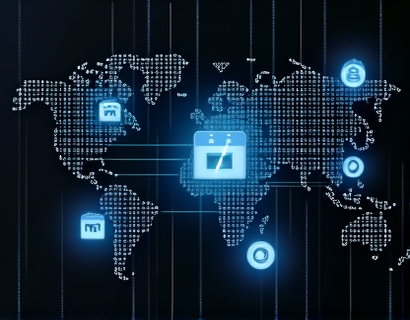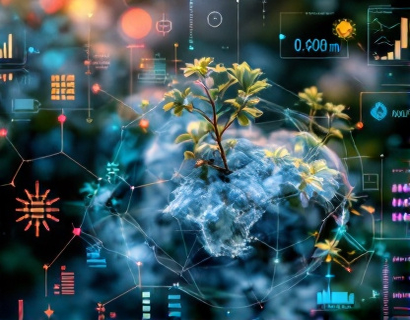Autonomous AI Agents: Revolutionizing Productivity Management for Businesses and Individuals
In the rapidly evolving landscape of business and personal productivity, the integration of Autonomous AI Agents stands out as a transformative force. These intelligent systems are designed to operate independently, managing a wide array of tasks and objectives with minimal human intervention. By automating routine and repetitive processes, Autonomous AI Agents enable businesses and individuals to concentrate on higher-value activities that drive growth and innovation. This article delves into the multifaceted ways AI-driven solutions are reshaping productivity management, offering insights and practical strategies to maximize efficiency in today's fast-paced world.
The Core Concept of Autonomous AI Agents
At their core, Autonomous AI Agents are sophisticated software systems that can perceive their environment, make decisions, and take actions to achieve specific goals. These agents are powered by advanced machine learning algorithms and natural language processing capabilities, allowing them to understand and respond to complex tasks. Unlike traditional software, which requires explicit programming for each task, Autonomous AI Agents learn from data and adapt to new situations, making them highly versatile and efficient.
The fundamental advantage of these agents lies in their ability to operate continuously and without fatigue. They can monitor multiple tasks simultaneously, prioritize based on urgency and importance, and adjust their strategies in real-time. This level of autonomy not only enhances productivity but also reduces the risk of human error, ensuring that tasks are completed accurately and efficiently.
Enhancing Business Productivity
For businesses, the implementation of Autonomous AI Agents can lead to significant improvements in operational efficiency and cost reduction. One of the primary applications is in customer service, where chatbots and virtual assistants handle a vast number of inquiries and support requests. These AI agents can provide instant responses, resolve common issues, and even escalate complex problems to human agents when necessary. This not only improves customer satisfaction but also frees up human resources to focus on more strategic tasks.
In the realm of project management, Autonomous AI Agents can streamline workflows by automating routine tasks such as task assignment, progress tracking, and deadline reminders. Tools like these ensure that projects stay on track and that team members are always aware of their responsibilities. By centralizing project data and providing real-time insights, these agents help managers make informed decisions and optimize resource allocation.
Another critical area is financial management. AI agents can monitor financial data, detect anomalies, and generate reports with minimal human intervention. This capability is particularly valuable for small and medium-sized businesses that may lack the resources for dedicated financial teams. By automating these tasks, businesses can reduce errors, save time, and gain deeper insights into their financial health.
Boosting Personal Productivity
Individuals can also benefit immensely from the integration of Autonomous AI Agents into their daily routines. Personal productivity assistants can manage calendars, set reminders, and organize tasks based on the user's preferences and priorities. These agents can learn from user behavior over time, becoming more effective at predicting needs and suggesting actions. For instance, an AI assistant might recommend the best time to schedule a meeting based on the user's past availability and productivity patterns.
In the context of time management, AI agents can help individuals break down large projects into manageable tasks and create actionable to-do lists. By prioritizing tasks based on urgency and importance, these agents ensure that users focus on the most critical activities first. This structured approach not only enhances productivity but also reduces stress and increases overall job satisfaction.
For students and professionals alike, AI agents can serve as research assistants, gathering and summarizing relevant information from various sources. This capability saves valuable time and allows users to concentrate on analyzing and applying the information rather than spending hours searching for it. Additionally, AI agents can assist in language learning by providing personalized lessons and feedback, adapting to the learner's progress and needs.
Strategies for Maximizing Productivity with Autonomous AI Agents
To fully leverage the potential of Autonomous AI Agents, businesses and individuals should adopt a strategic approach. Here are some practical strategies to maximize productivity:
- Identify Repetitive Tasks: Start by identifying tasks that are repetitive and time-consuming. These are prime candidates for automation. By offloading these tasks to AI agents, you free up time and mental energy for more strategic activities.
- Set Clear Objectives: Define clear and specific goals for the AI agents. This includes setting priorities and establishing key performance indicators (KPIs) to measure success. Clear objectives ensure that the agents operate efficiently and align with broader business or personal goals.
- Integrate with Existing Systems: Ensure that AI agents are seamlessly integrated with existing tools and platforms. This integration enhances workflow continuity and reduces the need for manual data transfer, which can be error-prone and time-consuming.
- Monitor and Adjust: Regularly monitor the performance of AI agents and make adjustments as needed. This includes fine-tuning algorithms, updating data sources, and refining task assignments. Continuous improvement is key to maintaining high levels of productivity.
- Foster a Culture of Adaptation: Encourage a mindset of continuous learning and adaptation within the organization or personal routine. Embrace new technologies and be open to feedback and suggestions for enhancing AI-driven processes.
By implementing these strategies, businesses and individuals can create a synergistic relationship between human expertise and AI capabilities. This collaboration not only boosts productivity but also fosters innovation and competitiveness in an increasingly digital world.
Challenges and Considerations
While the benefits of Autonomous AI Agents are substantial, it is essential to acknowledge and address potential challenges. One major concern is data security and privacy. AI agents often require access to sensitive information, making it crucial to implement robust security measures and comply with data protection regulations. Businesses must ensure that their AI solutions are built with security in mind, using encryption, access controls, and regular audits to safeguard data.
Another consideration is the potential for job displacement. While AI agents can automate routine tasks, they also create new opportunities for roles that focus on higher-level thinking, creativity, and emotional intelligence. Organizations should invest in reskilling and upskilling programs to help employees transition to new roles that complement AI technologies.
Ethical considerations are also paramount. AI agents should be designed and deployed in a way that promotes fairness, transparency, and accountability. This includes avoiding biases in decision-making algorithms and ensuring that AI-driven decisions can be explained and justified.
Future Trends in Autonomous AI Agents
The field of Autonomous AI Agents is rapidly evolving, with several exciting trends on the horizon. One significant development is the integration of AI with the Internet of Things (IoT). As more devices become connected, AI agents can orchestrate a network of smart devices to optimize operations, from smart homes to industrial automation. This interconnectedness will lead to more efficient resource management and enhanced user experiences.
Another trend is the advancement of Explainable AI (XAI). As AI systems become more complex, the need for transparency in their decision-making processes grows. XAI aims to make AI decisions more understandable to humans, building trust and facilitating better collaboration between humans and machines.
Furthermore, the rise of Edge AI is transforming how AI agents operate. By processing data closer to the source, Edge AI reduces latency and bandwidth usage, making real-time decision-making more feasible. This is particularly beneficial for applications requiring immediate responses, such as autonomous vehicles and real-time customer service.
Conclusion
The integration of Autonomous AI Agents represents a paradigm shift in productivity management for both businesses and individuals. By automating routine tasks, these agents enable users to focus on high-value activities that drive success and innovation. While challenges exist, the benefits in terms of efficiency, accuracy, and strategic advantage are undeniable. As the technology continues to evolve, embracing Autonomous AI Agents will be crucial for staying competitive in an increasingly automated world.











































